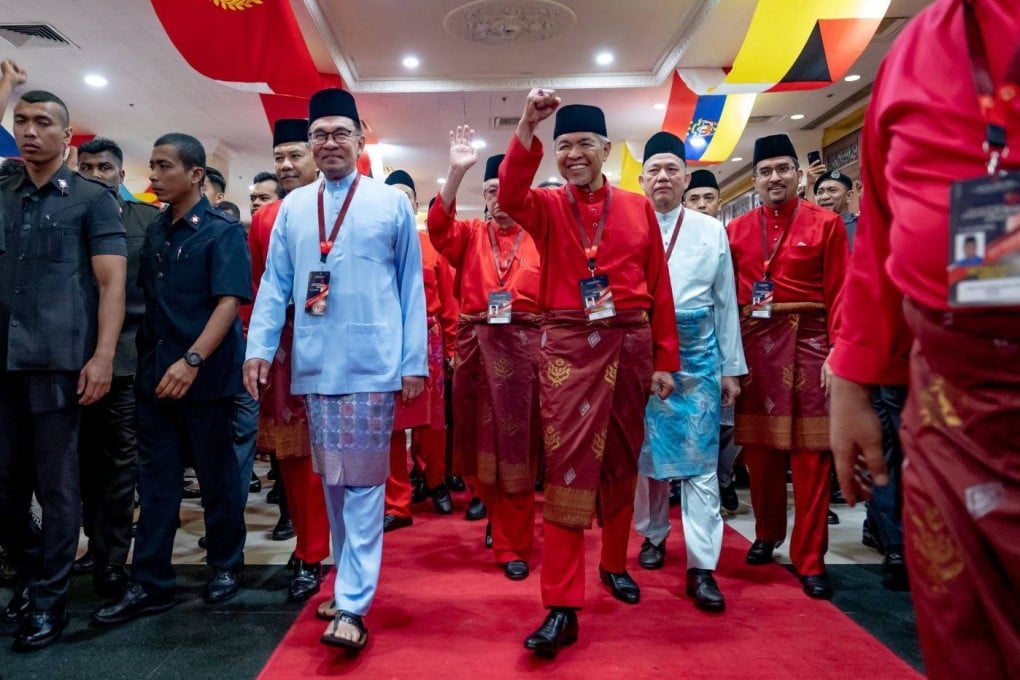Advertisement
Malaysia’s Umno caught between rock and hard place as identity crisis grips ahead of state polls
- Performance in six state elections crucial for party’s political survival as it tries to regain the support of majority Malay-Muslims while maintaining a ‘progressive’ image
- The contests may also set the tone for PM Anwar’s policies moving forward if the results lean heavily in favour of the Perikatan Nasional opposition bloc
Reading Time:3 minutes
Why you can trust SCMP
1

Malaysia’s former ruling party Umno faces a steep uphill battle as it seeks to rebuild its image as the champion of the majority Malay-Muslims while at the same time adjusting to the new reality of its minority role in the federal unity government ahead of six state elections that could determine the group’s continued relevance on the country’s political stage.
Analysts said the polls due in the next two months would be a measure of the popularity of Prime Minister Anwar Ibrahim’s administration, especially among the Malays who account for over 60 per cent of the Southeast Asian nation’s 32 million population.
The outcome, however, is unlikely to have a direct effect on Anwar’s government, but it may set the tone for its policies moving forward if the results lean heavily in favour of the Malay nationalist Perikatan Nasional opposition front.
Advertisement
Umno is also seen as a key cog to the performance of Anwar’s multiracial administration in the elections due to its strength as the sole significant Malay party that could take on the rivals Bersatu and the Pan-Malaysian Islamic Party (PAS).
“Should there be those who play up sentiments, claiming that Umno’s political cooperation would erode the position of Islam, the Malays and the bumiputeras, I would like to stress that Umno are no political chameleons,” Umno president Ahmad Zahid Hamidi told the party’s general assembly on Friday.
Advertisement
Advertisement
Select Voice
Select Speed
1.00x